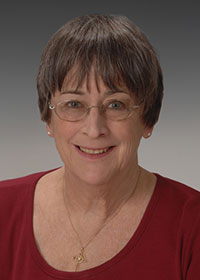
Celia Wolf-Devine received her B.A. from Smith College and her PhD in Philosophy from the University of Wisconsin at Madison. She has achieved wide recognition for her teaching and scholarship, having been awarded the Albert Nelson Marquis Lifetime Achievement Award" from Marquis Who's Who in 2017. She has spent most of her life teaching philosophy, most recently at Stonehill College – a position from which she retired in May 2007. She has achieved wide recognition for her teaching and scholarship, having been awarded the Albert Nelson Marquis Lifetime Achievement Award from Marquis Who's Who in 2017. She has published and lectured extensively (see curriculum vitae). Her work spans an unusually wide range of areas. Her graduate school work concentrated in Early Modern Philosophy; her dissertation was entitled “The Retreat from Realism: Philosophical Theories of Vision from Descartes to Berkeley, and Descartes on Seeing: Epistemology and Visual Perception incorporated and developed much of that material. She then developed an interest in social philosophy (especially affirmative action, gender issues and abortion). Another area of interest is Philosophy of Religion (especially epistemology of religious experience). In 2009 she published a philosophically informed and practical book on prayer, entitled The Heart Transformed: Prayer of Desire, and followed it with a second, smaller book on prayer entitled “A New Companion to Prayer: Meeting God where you are.” She continues to be interested in spirituality, and is at work on a book to be titled The Hungry Heart: Reflections on Desire. This website, therefore, includes a page devoted to her Early Modern work, one on her social philosophy, one on her work on prayer and religious epistemology, and one focusing on her pro-life writing.
There are several common threads that run through her philosophical work. Her scholarship on historical figures takes great pains to be accurate and faithful to the thought of the philosopher she is writing about – to understand it from the inside, making the philosopher’s questions her own. This habit of mind has carried over into her work on social philosophy. She is passionately committed to promoting dialogue about controversial issues. She therefore presents arguments on both sides and analyzes them carefully. In the book on gender issues which she co-edited with her husband Philip Devine, they work to bring together opposing views in a way that sets out reasons on each side and therefore enables students to reflect about what they think is right and why. Her independence of mind has made her something of a maverick in the current culture wars. She has passionate convictions, but is eager to engage in dialogue about them.
Another common thread that unites much of her work is her fascination with a question she encountered as a freshman in college – a question raised by Immanuel Kant. Can we know things as they are in themselves? The question has taken on somewhat different forms in Western philosophy, but it still persists. Do our perceptual systems, our language, our culture “get in the way” of direct knowledge of the world? Motivated by her opposition to perceptual theories that postulate some sort of inner object of perception – sense data, images, ideas – she began in her dissertation to explore one source of such theories in Early Modern theories of vision. Her interest in this problem has subsequently drawn her to the work of James J. Gibson, a contemporary psychologist, who tried to develop an alternative way of understanding perception that brings new resources to the defense of direct realism about perception.
Her work on prayer has allowed to combine her interest in perception with the quest for a reality transcending the physical world. Underlying it is a tempered realism about religious experience, but her books on prayer are more directed toward helping readers learn to encounter God in prayer, than a philosophical defense of the possibility of doing so. She has, however, written a qualified defense of the possibility of veridical religious experience by rebutting some common ways in which people have attempted to debunk religious experience. This article, entitled “Answering the ‘Nothing But’ Argument,” is posted on the prayer page. Her first book on prayer focused on the experiential core of prayer and was aimed at a fairly wide audience. The second is more directed to a Catholic readership.
She has Written a Series of Articles published on Mercatornet.com which can be viewed here.